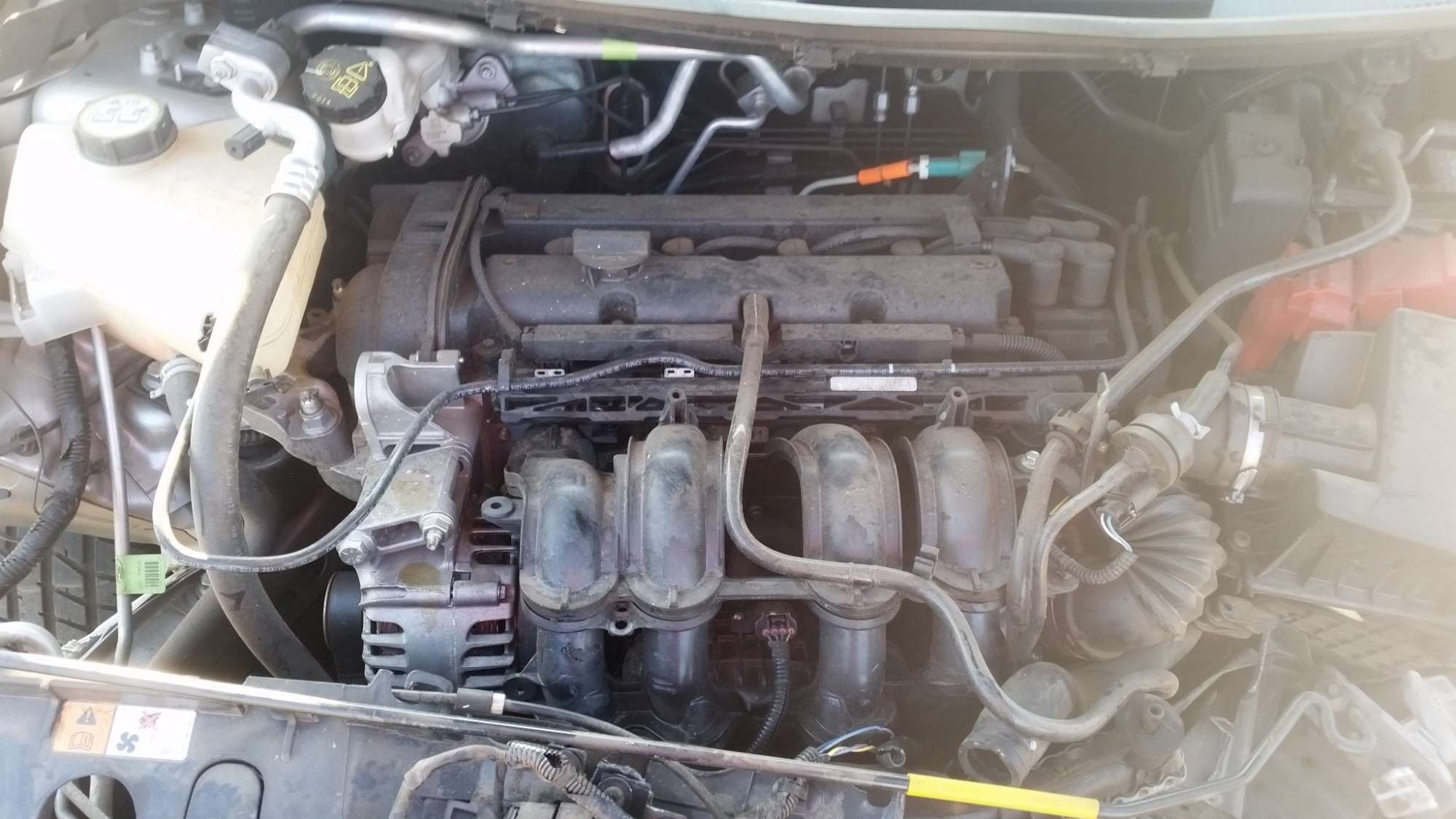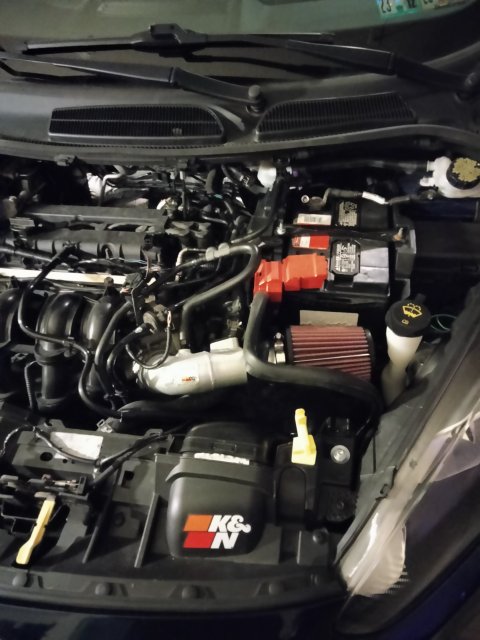Common Issues with the Ford Fiesta Engine and How to Fix Them
Common Issues with the Ford Fiesta Engine and How to Fix Them
Blog Article
The Future of Engines: Technologies Driving Lasting Power Solutions
As the auto sector browses the necessary transition in the direction of sustainability, the future of engines is progressively specified by groundbreaking advancements. Electric engine improvements, together with appealing advancements in hydrogen gas cells and biofuels, are reshaping the landscape of power services. The appearance of hybrid systems even more complicates this evolution, offering both chances and obstacles to decrease emissions properly. Paired with the integration of expert system in engine style, these technical strides increase crucial inquiries concerning their long-term stability and impact on traditional paradigms. What might this mean for the industry and consumers alike?
Electric Engine Advancement
The advancement of electrical engine growths represents a pivotal change in the aerospace and auto industries, driven by the immediate requirement for lasting options to nonrenewable fuel sources. This shift is defined by significant developments in battery modern technology, power electronics, and electric motor design, which jointly improve the performance and efficiency of electric engines.
Recent developments have led to the development of lighter, extra energy-dense batteries, such as lithium-silicon and solid-state batteries, which guarantee longer ranges and shorter charging times. Additionally, enhancements in electric motor performance, such as using permanent magnets and advanced cooling systems, enable electric engines to operate successfully under differing problems. These enhancements not just enhance lorry efficiency however additionally add to a reduction in overall power usage.
In addition, the assimilation of advanced software program algorithms has maximized power monitoring in electric automobiles, enabling regenerative stopping and anticipating billing techniques. As suppliers increasingly embrace electrical propulsion, the automobile and aerospace fields are seeing a paradigm shift towards greener innovations. This development not only fulfills regulative demands however likewise aligns with customer choices for eco-friendly transport options, solidifying electrical engines as a cornerstone of future lasting mobility.
Improvements in Biofuels
As the aerospace and automotive sectors progressively prioritize sustainable energy sources, improvements in biofuels become a complementary service to electrical engines. Biofuels, derived from natural products such as crops, waste, and algae, provide a cutting-edge avenue for reducing greenhouse gas discharges and reliance on nonrenewable fuel sources.
Current research study has concentrated on enhancing the efficiency and sustainability of biofuel production. Second-generation biofuels utilize non-food feedstocks, reducing competitors with food supply and reducing environmental influence. Advancements in synthetic biology have enabled the design of microbes to create biofuels a lot more successfully, leading to higher yields and reduced manufacturing costs.
Additionally, the growth of drop-in biofuels allows for smooth integration right into existing framework, making it possible for a smoother change for markets commonly depending on nonrenewable fuel sources. ford fiesta engine. These gas can be utilized in existing engines without adjustments, facilitating their fostering throughout various industries
Investments in biofuel innovation, in addition to helpful policies, are crucial to drive advancement and scalability. As the global community looks for to battle climate adjustment, biofuels provide a pragmatic, immediate remedy that aligns with the overarching goal of sustainability in transport and aeronautics.
Hydrogen Fuel Cell Modern Technology
An expanding variety of companies and scientists are discovering hydrogen gas cell modern technology as a practical choice to conventional power sources in transportation and power systems. This technology converts chemical power from hydrogen right into electricity with an electrochemical response, with water as the only by-product, making it an eco-friendly choice.
The core of hydrogen fuel cells is the fuel cell pile, where hydrogen molecules are split right into protons and electrons. The circulation of electrons produces go to this site electrical power, while protons move via a membrane to incorporate with oxygen from the air, developing water. This procedure leads to high performance and low exhausts, positioning hydrogen fuel cells as a vital player in the change to sustainable energy.
Considerable improvements have actually been made in improving the longevity and performance of gas cells, together with reducing costs through cutting-edge manufacturing techniques. The growth of hydrogen production techniques, such as electrolysis powered by eco-friendly power resources, improves the sustainability of the total system. As facilities for hydrogen refueling expands and production methods come to be extra efficient, hydrogen gas cell innovation holds wonderful assurance for decarbonizing various sectors, consisting of sturdy transportation and fixed power generation.
Crossbreed Systems and Their Influence
Hybrid systems stand for a significant advancement in sustainable engine technology, combining standard interior burning engines with electrical propulsion to enhance energy performance and reduce emissions (ford fiesta engine). This twin approach enables check it out lorries to utilize both source of power, allowing better adaptability in power consumption and reducing reliance on nonrenewable fuel sources

Along with environmental advantages, hybrid systems supply customers a practical change in the direction of completely electrical vehicles. They relieve array anxiety by combining the convenience of fuel with the advantages of electric propulsion, making them an attractive choice for a broader audience. As makers purchase hybrid modern technology, the growth of even more advanced battery systems and lightweight materials remains to boost efficiency. Generally, hybrid systems represent a crucial action in the direction of accomplishing sustainable transport and attending to the urgent need for eco-friendly power remedies.
The Role of AI in Engine Style
Leveraging sophisticated formulas and artificial intelligence strategies, the automobile market is increasingly incorporating expert system (AI) right into engine style procedures. AI improves the effectiveness and performance of layout by examining huge datasets to identify optimal configurations and efficiency specifications. This capability allows engineers to imitate different operating problems and predict engine habits under multiple circumstances, significantly lowering the moment and price related to typical prototyping techniques.
Additionally, AI facilitates the advancement of innovative materials and burning processes tailored for sustainability. By enhancing fuel effectiveness and reducing discharges, AI-driven styles straighten with global campaigns focused on lowering the carbon impact of automobile engines. Maker learning algorithms can likewise forecast upkeep needs, leading to enhanced reliability and longevity of engine components.
Furthermore, AI contributes in the combination of electrification technologies, such as hybrid systems, where it can enhance battery management and energy recovery processes. As the sector moves in the direction of even more lasting power remedies, the function of AI in engine layout comes my sources to be increasingly crucial, driving development and boosting the efficiency of future engines. Ultimately, the partnership between AI and engine style advertises a brand-new era of smarter, cleaner, and a lot more reliable automobile technologies.

Final Thought
In verdict, the future of engines is being shaped by a convergence of ingenious technologies that focus on sustainability. Electric engine developments, biofuel advancements, hydrogen gas cells, and hybrid systems collectively add to a considerable reduction in discharges and ecological influence. In addition, the integration of expert system in engine layout improves performance and performance. These transformative solutions underscore a commitment to developing a cleaner, more sustainable vehicle landscape, ultimately profiting both society and the atmosphere.
Electric engine advancements, together with encouraging growths in hydrogen gas cells and biofuels, are reshaping the landscape of power solutions. Furthermore, enhancements in electric motor efficiency, such as the usage of long-term magnets and progressed cooling systems, allow electrical engines to operate successfully under differing conditions. By enhancing gas efficiency and lessening discharges, AI-driven styles align with international campaigns aimed at minimizing the carbon footprint of auto engines. As the sector moves towards even more lasting power solutions, the role of AI in engine style becomes increasingly crucial, driving technology and boosting the performance of future engines. Electric engine developments, biofuel growths, hydrogen gas cells, and hybrid systems jointly contribute to a substantial decrease in discharges and environmental impact.
Report this page